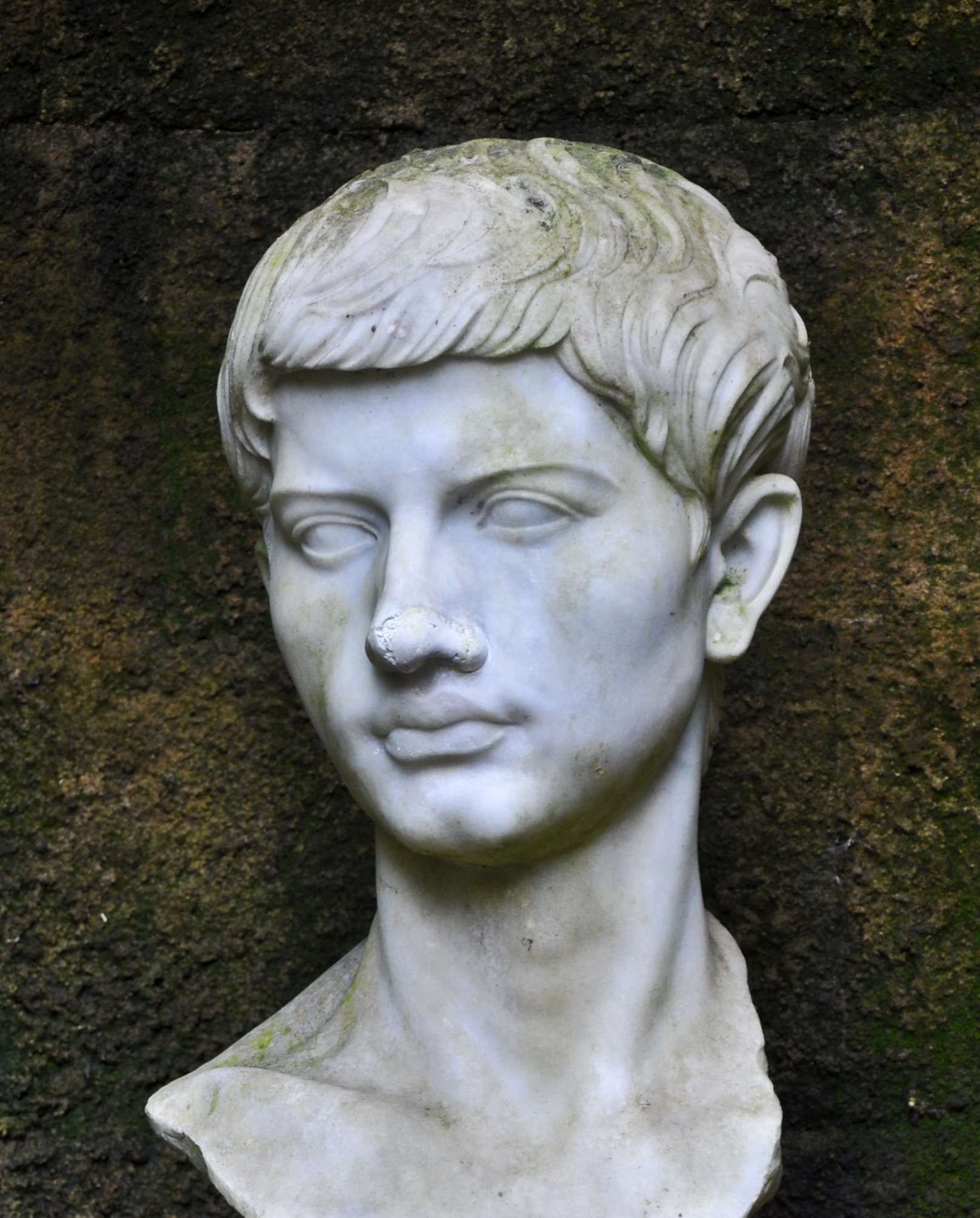
Virgil
Publius Vergilius Maro (Classical Latin: [ˈpuːbliʊs wɛrˈɡɪliʊs ˈmaroː]; traditional dates 15 October 70 BC – 21 September 19 BC), usually called Virgil or Vergil (/ˈvɜːrdʒɪl/ VUR-jil) in English, was an ancient Roman poet of the Augustan period.[1] He composed three of the most famous poems in Latin literature: the Eclogues (or Bucolics), the Georgics, and the epic Aeneid. A number of minor poems, collected in the Appendix Vergiliana, were attributed to him in ancient times, but modern scholars consider his authorship of these poems to be dubious.[2]
This article is about the ancient Roman poet. For the grammarian, see Virgilius Maro Grammaticus. For other uses, see Virgil (disambiguation).
Virgil
Publius Vergilius Maro
15 October 70 BC
Andes, Cisalpine Gaul, Roman Republic
21 September 19 BC (aged 50)
Brundisium, Italy, Roman Empire
Poet
Virgil's work has had great influence on Western literature, most notably Dante's Divine Comedy, in which Virgil appears as the author's guide through Hell and Purgatory.[3] Virgil has been traditionally ranked as one of Rome's greatest poets. Since its composition, his Aeneid has been considered the national epic of ancient Rome.[4]
Life and works[edit]
Birth and biographical tradition[edit]
Virgil's biographical tradition is thought to depend on a lost biography by the Roman poet Varius. This biography was incorporated into an account by the historian Suetonius, as well as the later commentaries of Servius and Donatus (the two great commentators on Virgil's poetry). Although the commentaries record much factual information about Virgil, some of their evidence can be shown to rely on allegorizing and on inferences drawn from his poetry. For this reason, details regarding Virgil's life story are considered somewhat problematic.[5]: 1602
According to these accounts, Publius Vergilius Maro was born in the village of Andes, near Mantua[i] in Cisalpine Gaul (northern Italy, added to Italy proper during his lifetime).[6] Analysis of his name has led some to believe that he descended from earlier Roman colonists. Modern speculation is not supported by narrative evidence from his writings or his later biographers. Macrobius says that Virgil's father was of a humble background, though scholars generally believe that Virgil was from an equestrian landowning family who could afford to give him an education. He attended schools in Cremona, Mediolanum, Rome, and Naples. After briefly considering a career in rhetoric and law, the young Virgil turned his talents to poetry.[7]
According to Robert Seymour Conway, the only ancient source which reports the actual distance between Andes and Mantua is a surviving fragment from the works of Marcus Valerius Probus. Probus flourished during the reign of Nero (AD 54–68).[8] Probus reports that Andes was located 30 Roman miles from Mantua. Conway translated this to a distance of about 45 kilometres or 28 miles.[8]
Relatively little is known about the family of Virgil. His father reportedly belonged to gens Vergilia, and his mother belonged to gens Magia.[8] According to Conway, gens Vergilia is poorly attested in inscriptions from the entire Northern Italy, where Mantua is located. Among thousands of surviving ancient inscriptions from this region, there are only 8 or 9 mentions of individuals called "Vergilius" (masculine) or "Vergilia" (feminine). Out of these mentions, three appear in inscriptions from Verona, and one in an inscription from Calvisano.[8]
Conway theorized that the inscription from Calvisano had to do with a kinswoman of Virgil. Calvisano is located 30 Roman miles from Mantua, and would fit with Probus's description of Andes.[8] The inscription, in this case, is a votive offering to the Matronae (a group of deities) by a woman called Vergilia, asking the goddesses to deliver from danger another woman, called Munatia. Conway notes that the offering belongs to a common type for this era, where women made requests for deities to preserve the lives of female loved ones who were pregnant and were about to give birth. In most cases, the woman making the request was the mother of a woman who was pregnant or otherwise in danger. Though there is another inscription from Calvisano, where a woman asks the deities to preserve the life of her sister.[8] Munatia, the woman whom Vergilia wished to protect, was likely a close relative of Vergilia, possibly her daughter. The name "Munatia" indicates that this woman was a member of gens Munatia, and makes it likely that Vergilia married into this family.[8]
Other studies[9] claim that today's consideration for ancient Andes should be sought in the Casalpoglio area of Castel Goffredo.[10]
Spelling of name[edit]
By the fourth or fifth century AD the original spelling Vergilius had been changed to Virgilius, and then the latter spelling spread to the modern European languages.[33] This latter spelling persisted even though, as early as the 15th century, the classical scholar Poliziano had shown Vergilius to be the original spelling.[34] Today, the anglicisations Vergil and Virgil are both considered acceptable.[35]
There is some speculation that the spelling Virgilius might have arisen due to a pun, since virg- carries an echo of the Latin word for 'wand' (uirga), Vergil being particularly associated with magic in the Middle Ages. There is also a possibility that virg- is meant to evoke the Latin virgo ('virgin'); this would be a reference to the fourth Eclogue, which has a history of Christian, and specifically Messianic, interpretations.[iv]
Collected works
Biography
Commentary
Bibliographies